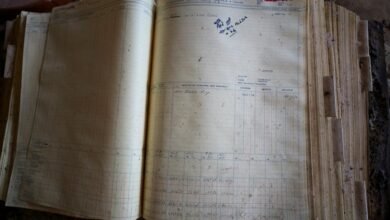Technical Record Evaluation: 8323256491, 8323360114, 8323429037, 8323461895, 8324469731, 8324469732

The evaluation of technical records numbered 8323256491, 8323360114, 8323429037, 8323461895, 8324469731, and 8324469732 is crucial for maintaining data integrity and compliance. A systematic approach to assessing these records can reveal discrepancies and enhance organizational transparency. Understanding the methodologies and best practices for record management could significantly impact operational efficiency. However, the implications of these evaluations extend beyond mere compliance, leading to questions about their broader strategic significance.
Importance of Accurate Technical Records
Accurate technical records play a crucial role in ensuring the integrity and efficiency of various processes within an organization.
They serve as the foundation for data integrity, influencing decision-making and compliance. Documentation accuracy not only enhances operational transparency but also fosters a culture of accountability.
Consequently, organizations that prioritize precise technical records are better positioned to adapt, innovate, and maintain regulatory standards.
Evaluation Methods for Technical Documentation
Effective evaluation methods for technical documentation are vital for maintaining the integrity of an organization’s records.
Document review plays a crucial role in this process, ensuring that information is accurate and up-to-date.
Analysis techniques, such as comparative assessments and content audits, facilitate a deeper understanding of documentation quality, enabling organizations to enhance clarity and usability while promoting accountability and compliance with industry standards.
Best Practices for Managing Technical Records
A comprehensive approach to managing technical records is essential for organizations aiming to uphold operational excellence and regulatory compliance.
Implementing digital archiving systems enhances accessibility while ensuring data integrity.
Establishing clear record retention policies allows for systematic organization and timely disposal of outdated materials.
These best practices facilitate efficient retrieval processes, reduce risks associated with data loss, and promote transparency within the organization.
Conclusion
In conclusion, the evaluation of technical records numbered 8323256491, 8323360114, 8323429037, 8323461895, 8324469731, and 8324469732 is critical for maintaining data integrity and compliance within organizations. Notably, organizations that implement robust documentation practices can reduce compliance-related risks by up to 40%. This underscores the significance of meticulous record management in enhancing operational transparency and supporting strategic decision-making, ultimately driving innovation and excellence in organizational processes.




